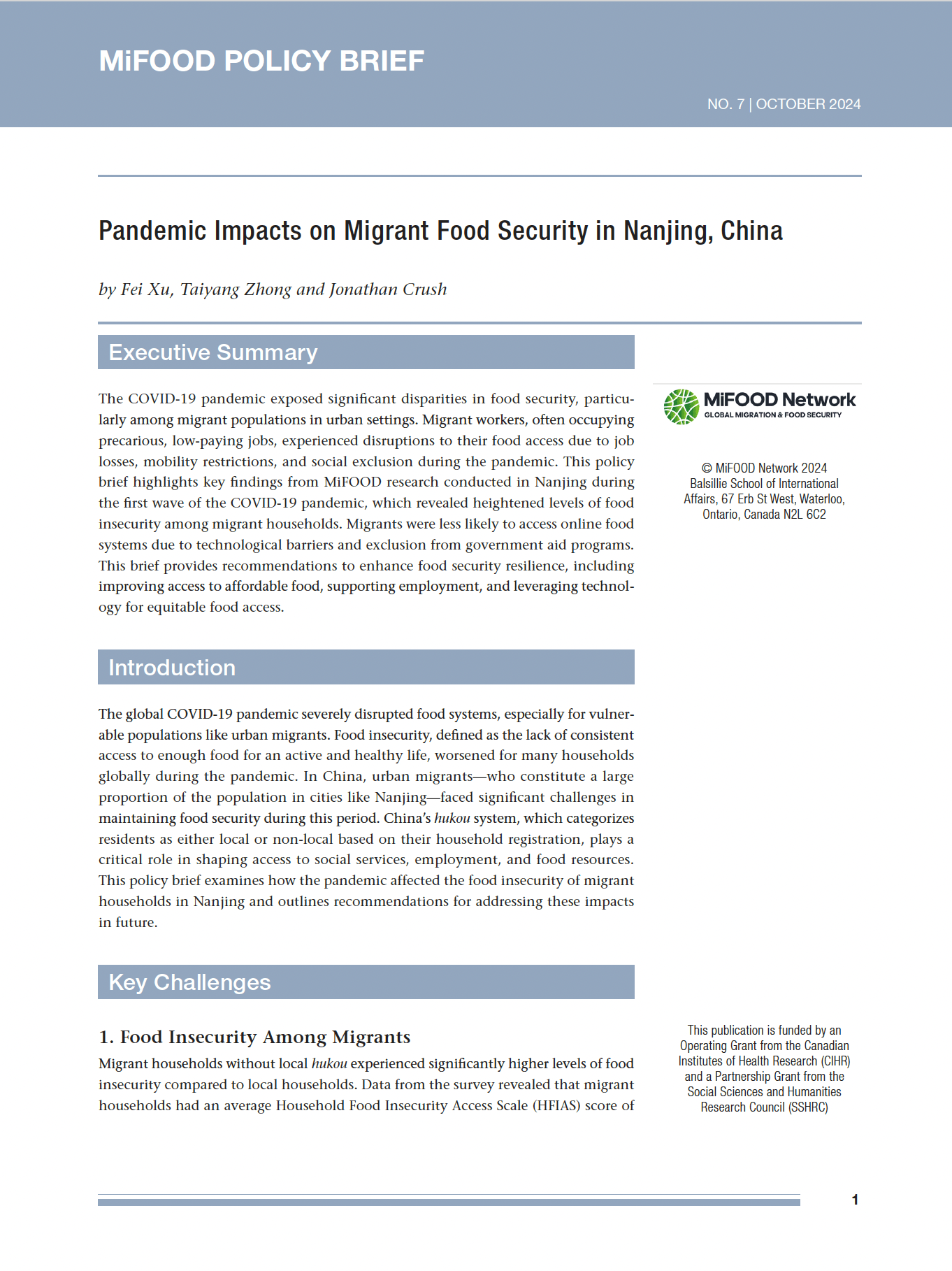The COVID-19 pandemic exposed significant disparities in food security, particularly among migrant populations in urban settings. Migrant workers, often occupying precarious, low-paying jobs, experienced disruptions to their food access due to job losses, mobility restrictions, and social exclusion during the pandemic. This policy brief highlights key findings from MiFOOD research conducted in Nanjing during the first wave of the COVID-19 pandemic, which revealed heightened levels of food insecurity among migrant households. Migrants were less likely to access online food systems due to technological barriers and exclusion from government aid programs. This brief provides recommendations to enhance food security resilience, including improving access to affordable food, supporting employment, and leveraging technology for equitable food access.

